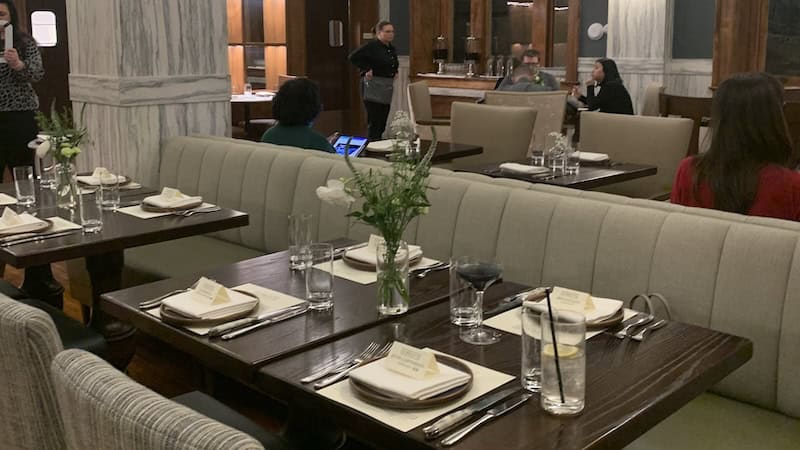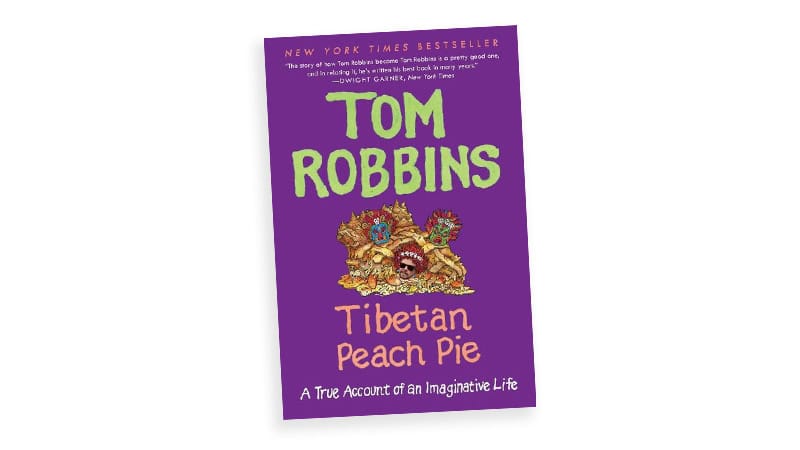Can Can Brasserie in Carytown, RVA
Most of the way to Paris
Can Can: most of the way to Paris
With Sherrie Page
– Photograph by Daniel Jones –
[Editor’s Note: The reviewers are two local writers who often dine together and who less often agree on what they’ve experienced.]
CAN CAN BRASSERIE, 3120 W. CARY ST., RICHMOND
He’s had enough of the heat. Sunburned from two days at the beach, he’s stiff from playing too much in the waves. She’s just returned from two weeks in Japan, still drowsy and waiting for her head to arrive.
In no mood to cook, they head for Carytown, avenue of restaurants.
They wind up in Paris. City of lights, food, drink and handsome people.
Not the whole city, of course, but a faithful and tasteful evocation of a classic Parisian brasserie circa 1920.
CAN CAN’S ATTENTION TO DETAIL
They’re given a corner table, perfect for people-watching. From pastel-clad patrons, sun-kissed and pretty, to the black and white French outfits of the wait staff complete with calf-length aprons, Can Can bears the feel of a place where no one wants to break the attractive spell. This isn’t to imply that Can Can is snooty; it’s suave. Three generations of casually well-dressed diners, boomers to babies, all pitch in to create the restaurant’s elegance and joie de vivre.
No detail goes wanting: claw-foot bistro tables, red leather booths and seat cushions, frosted glass dividers, exquisite flower arrangements, slowly spinning ceiling fans, tiers of bottles. The 15-foot-high ceiling is a work of art, recalling the classic look of hammered tin motifs.
She’s in her element the instant she sits to a starched tablecloth. He’s in his when the waiter arrives quickly with bread, fresh baked on site.
ARTISTRY, EXCELLENCE, A FEW INCONSISTENCIES
Can Can’s high waiter-to-patron ratio makes for a bustle of service. He ogles the menu’s wide beer choices. When he finds his accustomed Guinness draft unavailable, the sommelier – yes, Can Can has a perambulating wine expert – recommends a Trappist beer, brewed by monks in one of seven remaining Belgian monastery breweries.
The drink menu is vast, reflecting the French love of quality spirits. The food selections are more limited, though representing a variety of cuisines: salads, red meats, seafood and poultry. She admires the artistry of the ingredients. He carps that words like soubise, banyuls and sablé sound made up.
She orders for them both, to prevent him going for the hamburger and pomme frites. Her Lump Crab Napoleon Salad is excellent in flavor, presentation, amount of crab and fresh greens. His Calamari Salad disappoints; only two overly fried pieces of squid rest on the greens. All he can taste is bland breading. He would have sent the dish back, but her rule is well established: Eat what’s brought.
As is their custom, they split an entrée. She chooses the Pan Roasted Grouper, which arrives on a warm summer succotash with basil purée. She savors the panoply of flavors; he can’t help but keep noting the relatively small fillet that, while delicious, costs $27. This sort of remark never makes her happy, but in a beautiful setting with splendid service and fresh-cut flowers, she lets it go. She squeezes his hand with tolerance.
That gesture helps soothe his irritation. The Trappist beer does the rest. It lingers on his tongue like champagne, showing off native farmhouse hints that expand with every swallow. He claims the $10 price tag was well spent. This earns him a fleeting sidelong glance and another tolerant pat on the hand.
WELL TREATED, WELL TRAVELED
A Fleur De Sel (more made-up words?) Chocolate Cake and a weaker-than-expected French press coffee cap the meal well. The bill with tip comes to a hundred dollars, more than he likes to spend on food, less than a flight for two to France.
Can Can expends a lot of resources on atmosphere, service and variety to serve up an authentic brasserie experience. The place succeeds, demonstrated when he and she leave with moods uplifted, hand-in-hand. They both feel well treated, and well traveled.
It’s true: No one can stay down on the farm — or tired and grumpy — after they’ve seen Par-ee.
Best-selling author and BOOMER columnist David L. Robbins will have his novel, The Devil’s Waters, published Nov. 13 by Amazon’s Thomas & Mercer arm. Visit him at DavidLRobbins.com.
Sherrie Page Najarian is a freelance writer who lives and dines in Richmond’s restaurant-heavy Museum District.


